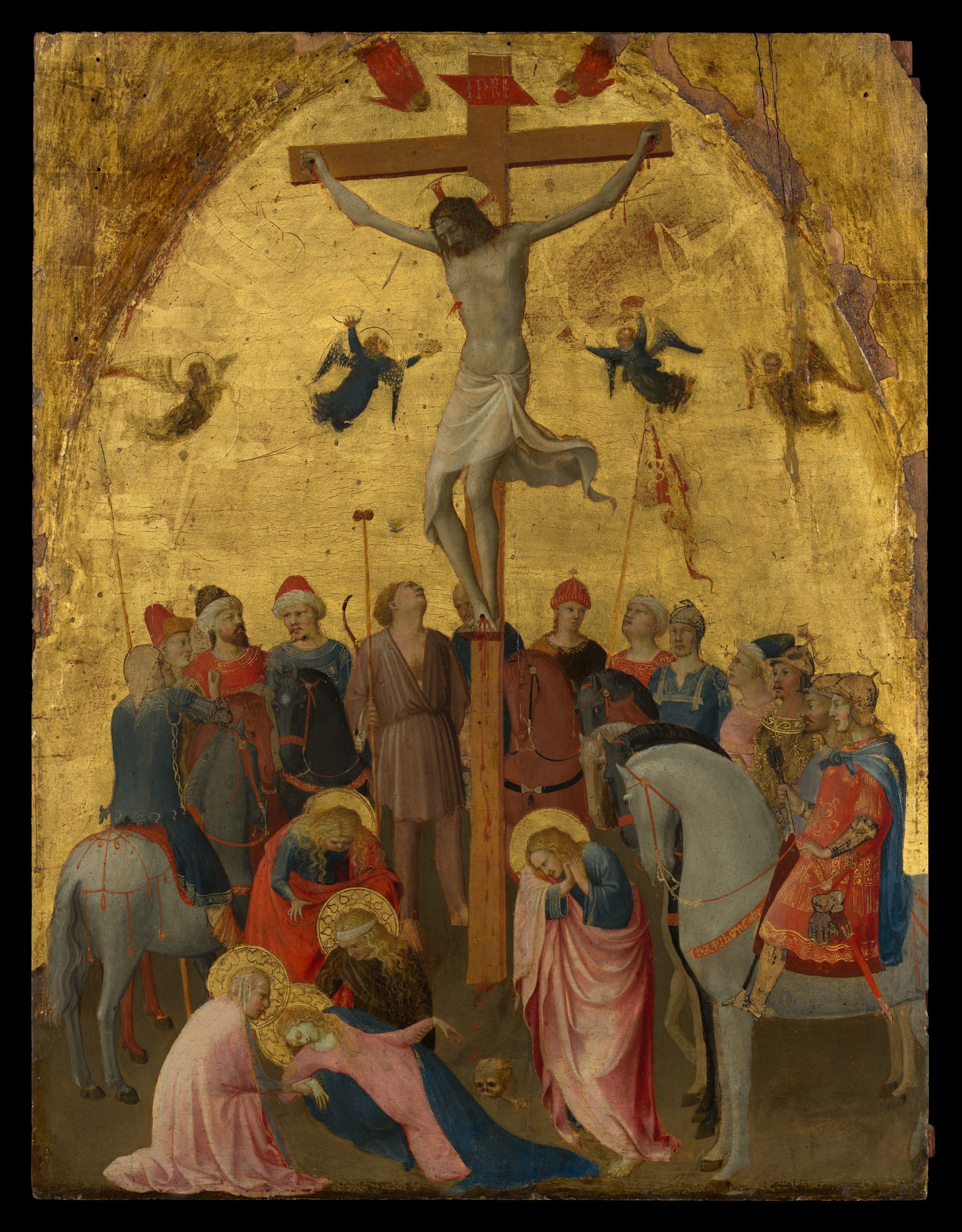
Suffering: Golden Treasures in Disguise
April 12, 2022

Typically, you know a crucifix is from Spain when there is lots of blood included. We’re used to seeing just a little trickle maybe coming from Our Lord’s knees, while the Spanish crucifixes display ample blood flowing from his crown of thorns, lacerations all over his body, as well as the wounds in his hands, feet, and side.
There’s an almost life-sized crucifix matching this typically Spanish depiction in the Carmelite convent in Buffalo, New York. Years ago, I complained in prayer before this image about MY sufferings. I was feeling pretty low, and lonely when I began, yet as I contemplated his face, I encountered a gaze that transmitted he had no desire for me to suffer. He was not the origin of it, but he was there voluntarily bearing it all for my sake. It struck me that he wasn’t intent on being consoled for his pains, innocent and alone on the cross as he was. Instead, I felt comforted. That moment has been an inspiration for me to seek to offer real consolation to others who are burdened by their own sufferings. One of those ways is to speak about the redemptive meaning of suffering, which has many facets. Pope St. John Paul II tells us in his encyclical Salvifici Doloris (Salvific Suffering):
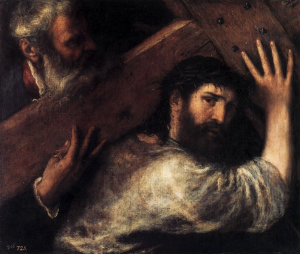
“The Redeemer suffered in place of man and for man. Every man has his own share in the Redemption. Each one is also called to share in that suffering through which the Redemption was accomplished. He is called to share in that suffering through which all human suffering has also been redeemed. In bringing about the Redemption through suffering, Christ has also raised human suffering to the level of the Redemption. Thus each man, in his suffering, can also become a sharer in the redemptive suffering of Christ” (SD n.19).
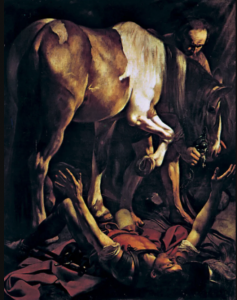
In other words, Christ suffered for us in order to redeem us, and so suffering itself has at the same time been redeemed. We also are called to share in the work of redemption through our own suffering.
St. Paul lets us know that there’s no comparison between whatever we are going through now and the joys we will reap afterwards: “We are … fellow heirs with Christ, provided we suffer with him in order that we may also be glorified with him. I consider that the sufferings of this present time are not worth comparing with the glory that is to be revealed in us”(Rm 8:17-18). He also says to the Corinthians: “For this slight momentary affliction is preparing for us an eternal weight of glory beyond all comparison, because we look not to the things that are seen but to things that are unseen”(2 Cor 4:17-18).
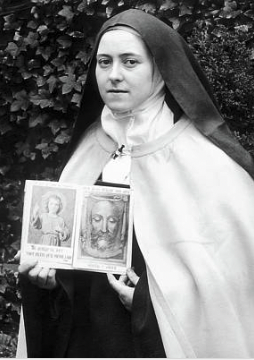
So many saints show their conviction about their current “investment” in relation to their longing for what is to come. St. Therese of Lisieux called even little discomforts and humiliations “golden treasures” because she embraced them and united them to Our Lord, counting on him to reward her eternally. Nothing is too small in God’s eyes: “Are my tears not stored in your flask, recorded in your book?” (Psalm 56:9) St. Teresa of Avila offers us some perspective by contending, “In light of heaven, the worst suffering on earth will be seen to be no more serious than one night in an inconvenient hotel.”
It’s also comforting to know that we can offer up our temporal trials and pains for the salvation of those we love. Doesn’t that help to make them bearable, when we consider they are an investment for the future happiness of our family, friends, and many others?
Jesus himself bids us to draw near to him when we are weighed down: “Come to me, all you who labor and are burdened, and I will give you rest. Take my yoke upon you and learn from me, for I am meek and humble of heart; and you will find rest for yourselves.
For my yoke is easy, and my burden light” (Mt 11:28-30).
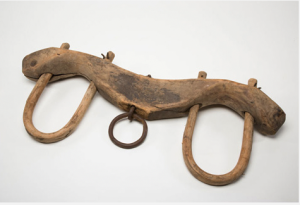
Two oxen fit under a single yoke. Therefore, Jesus is the other “oxen” walking under the same yoke at my side. I am not alone, and the burden is not too much when he helps me to carry it. Furthermore, when we bear our cross willingly, we can become more sensitive to the sufferings of others, and thus kinder and more capable of offering a consoling word or gesture to fellow sufferers. In other words, we become more Christ-like.
In his first letter, St. Peter exhorts: “Always be ready to give an explanation to anyone who asks you for a reason for your hope” (1 Pet 3:15). I think that answer is most convincing when we speak from our experience of a suffering that is born patiently and lovingly and thus happily. It’s amazing that Christians can succeed in speaking triumphantly in the face of what otherwise remains a mystery:

“We are afflicted in every way, but not crushed; perplexed, but not driven to despair; persecuted, but not forsaken; struck down, but not destroyed; always carrying in the body the death of Jesus, so that the life of Jesus may also be manifested in our bodies. For while we live we are always being given up to death for Jesus’ sake, so that the life of Jesus may be manifested in our mortal flesh …. knowing that he who raised the Lord Jesus will raise us also with Jesus” (2 Cor 4: 8-11,14).

Written by,
Dr. Joan Kingsland, Theological Consultant
for Ruah Woods Institute
Share